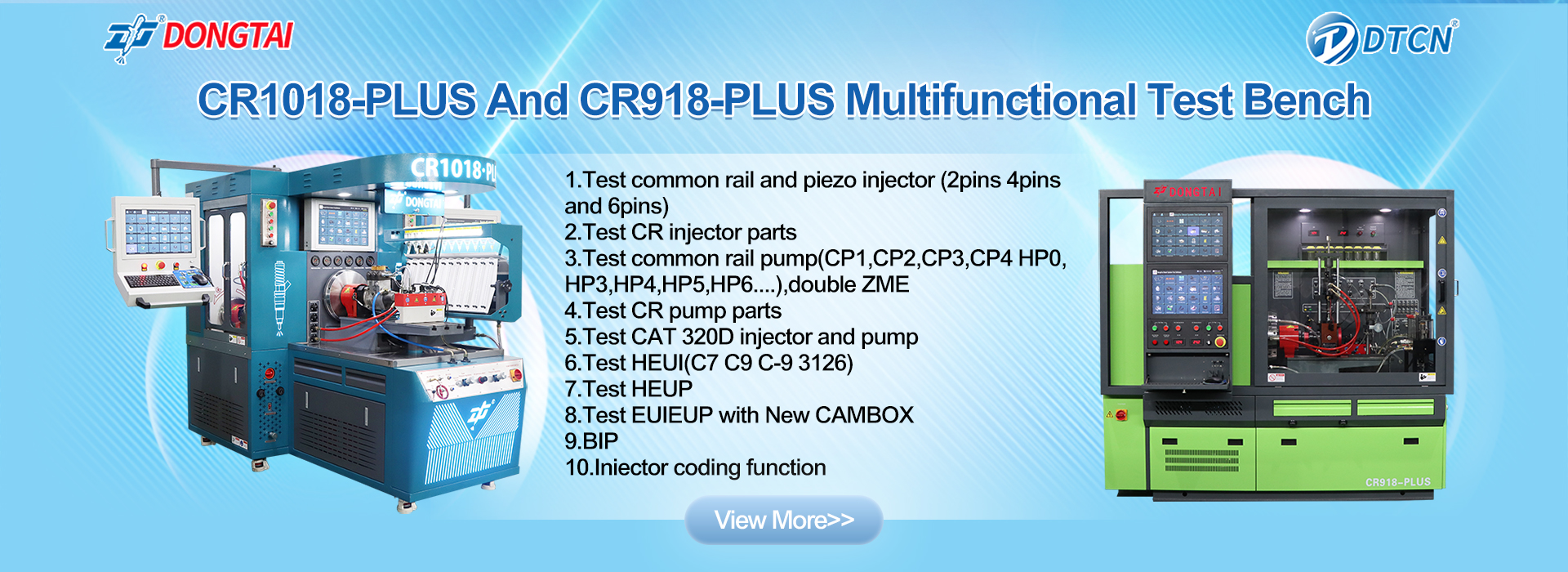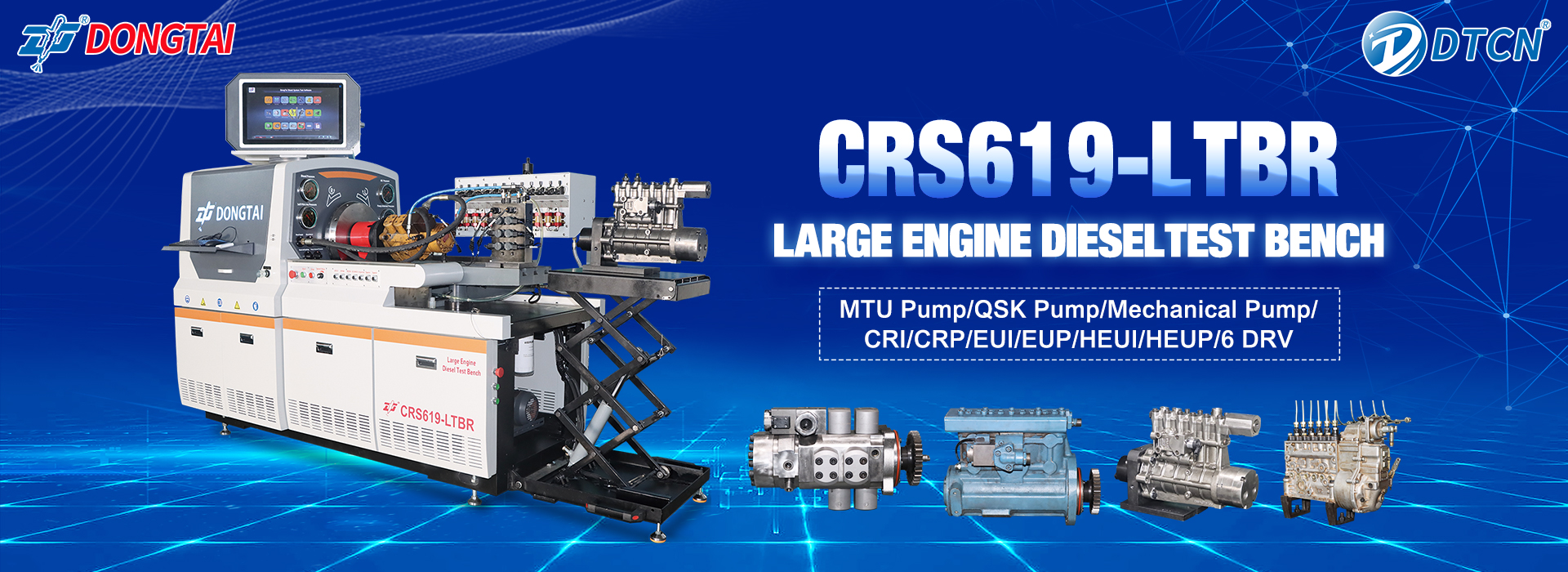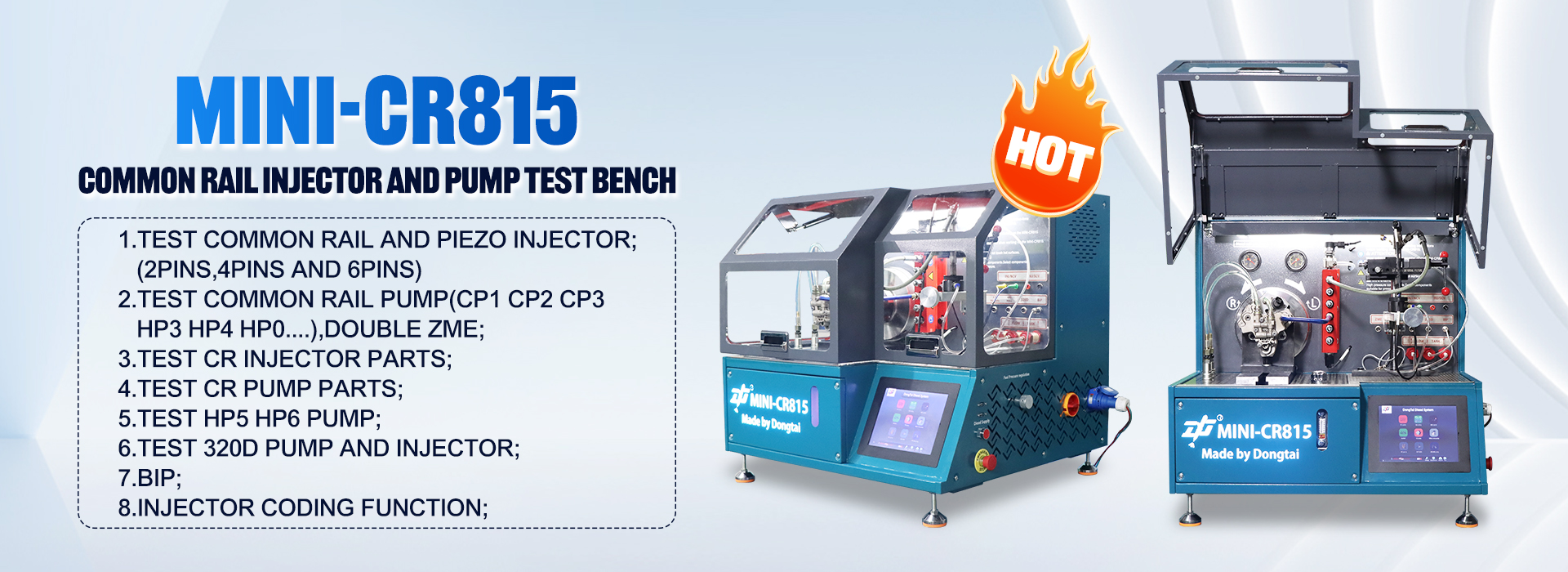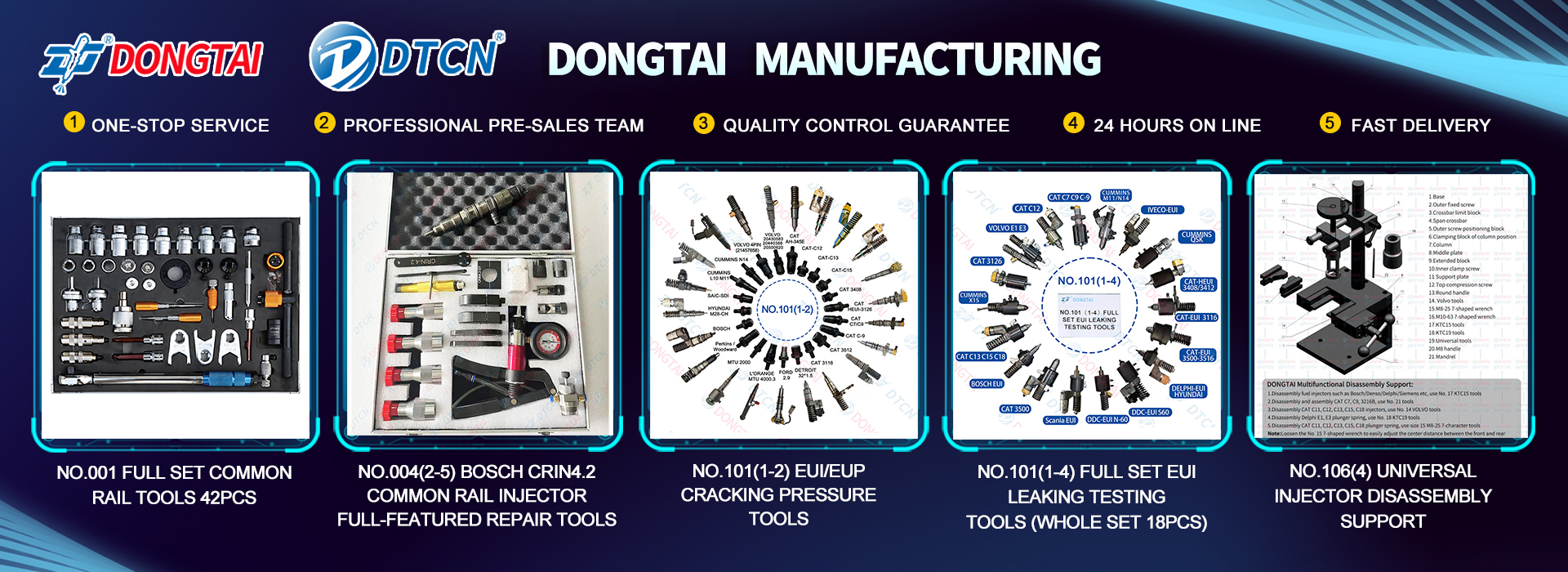- Test Bench
Diesel Injection Pump Test Bench Common Rail Injector Test Bench Common Rail Injector and Pump Test Bench EUI EUP,HEUI,CAT320D TEST BENCH Common Rail Simulator Nozzle Tester EDC Pump Tester/Sensor Tester CRI Stroke Measuring System PT Cummins Test Bench Balance Machine Work Bench Fuel System Tester DIAGNOSTIC SCANNER Stage3 Common Rail Injector Measuring Tools DPF,DOC,SCR Cleaning Machine
- Common Rail and EUI EUP HEUI HEUP Tools
- Diesel Engine Parts
Spare Parts Nozzle Plunger Head Rotor Delievery Valve Common Rail Shims Diesel Injector Tight Hat List 12V, 24V Solenoid Valve Bosch Pump Diesel Regulating Valve DRV Bosch Fuel Metering Valve DRV Bosch Fuel Rail Pressure Sensor Bosch Injector Valve Assembly Bosch Injector Valve Cap Pressure Limiting Valve Denso Valve Denso Valve Rod Denso SCV Valve Delphi Valve Delphi Rail Pressure Sensor Delphi Inlet Metering Valve CAT Plunger CAT Plunger Pump CAT Delievery Valve
- Bosch
- Denso
- Delphi
- CAT
- Cummins
- Siemens VDO
- Ultrasonic Tank Cleaner
- Wheel Loader
- Air Compressor
- AC Refrigerant Recovery Machin
PRODUCTS products
-
Free hotline
0086-13455388360
The diesel engine's heart is the fuel injection pump, deliverying fuel to maintain the a rhythm or timing which make the successfully running of the engine.At the same time,it also control the fuel quantity to gain the power required.While in the gasoline engine,the injection pump's function is in the throttle and the ignition system.So if there is any probem in the gasoline pump,it is necessary to check compression, fuel, and spark.Because there is no ignition system in the diesel engine.Comparing to the gasoline engine,the diesel engine has the advantage of a direct result of better fuel injection.Today China Balin Parts Plant,a global manufacturer for common rail parts & diesel injection parts,will show you how the injection pump work. Inline-injection (Jerk) Pumps In 1890s the first pumps to use plungers to force metered fuel to the combustion chamber were developed.Later in 1927,the mass-produced helix-controlled inline pump was also introduced by BOSCH.The pumps,sometimes called jerk pumps,looks like Bosch P7100 (P-pump) on '94 to '98 Dodge Ram 5.9L Cummins engines.Meanwhile they constructed from separate pump and plunger units connected inline, one per cylinder.They are activated by a cam, which is mechanically connected to the engine.Although they are not to the sophistication of an electronically controlled system,the pumps still have the function of vary timing.Inline injection pumps look like mini inline engines.It delivered 3,000-5,000 psi of injection pressure for the earliest mini inline injection pumps while 18,000 psi of pressure for the latest ones,Bosch P7100 which we could find in '94 to '981/2 Cummins engines. Distributor (Rotary) Injection Pumps There is only one fuel-metering plunger in the distributor injection pump.Similar to the distributor working principle on a gasoline engine,the hydraulic is connected with different ports on the distributor head through a spinning rotor.This rotary injection pump has the advantage that all the shots of fuel are exactly the same which make a smaller
Add: High-Tech Zone, Taian, Shandong, China.
TEL:+86-13455388360 FAX: +86-538-2096189 E-mail: dongtai-china@hotmail.com
TAIAN DONGTAI MACHINE MANUFACTURING CO.,LTD 备案号:鲁ICP备15006010号-1









